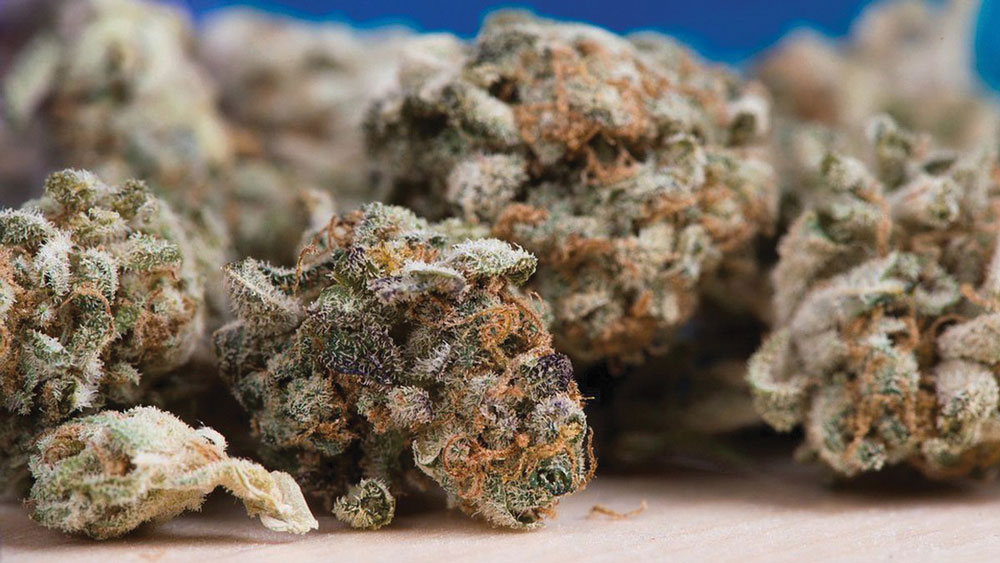Minnesota is a weird state. The Twin Cities of Minneapolis and Saint Paul are as liberal as can be, but, depending which direction a person takes, they might find themselves in MAGA-land the second they cross the border into a suburb. And once they’re out of the suburbs, they might as well be in the middle of North Dakota. Remember Michele Bachmann, the former House member whose backwardness and bizarre conspiracy theorizing presaged the Trump era? The district she represented wrapped around about three quarters of the Twin Cities and spread out into the surrounding farmland.
“X square miles surrounded by reality” has become a cliche. It’s often applied to liberal cities like Austin and college towns like Iowa City. But Minnesota might be the best example of this phenomenon in the whole country—though the grim atavism of Eastern Oregon might make Portland a contender.
Still, when the Republican-controlled Minnesota state Senate last year declined to take up adult-use cannabis legalization, which had passed the Democratic-controlled House in May, some observers were a bit surprised, and some said it didn’t bode well for legalization efforts in some other states. That’s because Minnesota has a long history of relative tolerance for weed. It decriminalized cannabis way back in 1976. Possession of less than 42.5 grams is a petty misdemeanor carrying a maximum fine of $200. The state was relatively late to the medical-marijuana party, legalizing it in 2014, but still: Minnesota ranks among the least censorious of states when it comes to weed.
But the failure of the legalization bill likely isn’t a bellwether for the rest of the country or for federal legalization, though it certainly illustrates why it’s taking so long. Part of the reason the Senate declined to take up the measure is the usual obstructionism that Republicans across the country, and in Washington, D.C., have taken up as a default tactic: They didn’t want to give a victory to the Democratic-Farmer-Labor Party, as the Democrats of Minnesota are still quaintly called. But based on the statements of several state Republican lawmakers, many of them would otherwise be fine with legal weed. Of course, there is still a deep strain of prohibition among Republicans everywhere; it’s just not nearly as predictable as it was even a few years ago.
That mirrors what’s happening in D.C. and elsewhere in the country. There are lots of pro-, or at least not anti-legalization Republicans in both houses of Congress. But, because it was Democrats who first pushed for federal legalization, many Republicans, including Senate Minority Leader Mitch McConnell, declared it was a no-go until Republicans came up with their own legalization bill, the States Reform Act, sponsored by Congresswoman Nancy Mace of South Carolina. It is, in some respects, actually more liberal than the Democrats’ version, the Cannabis Administration and Opportunity Act, which Senate Majority Leader Chuck Schumer—along with his co-sponsors, Cory Booker of New Jersey and Ron Wyden of Oregon—are pushing hard. There was no way Republicans were going to vote for that.
The problem is that Senate Republicans, led by McConnell, seem poised to block passage of any kind of legalization this year, even that sponsored by a Republican. That could change, of course.
Meanwhile, a bunch of other states are likely to take up legalization this year. Delaware and Oklahoma—which is oddly a very pro-cannabis state in general, with a huge medical-pot industry—seem ready to legalize adult use. And full legalization measures are making headway in Maryland, Ohio, Pennsylvania and Rhode Island. Other states that might legalize this year, according to an analysis by Cannabis Business Times, include Arkansas, Florida, Idaho, Missouri and South Dakota. Several more are considering legalizing medical pot.
The momentum is still there, despite what happened in Minnesota—where lawmakers might take up the question again this year. Another indication of that: the Republican who now has Michele Bachman’s old seat, Tom Emmer, has indicated that he’s open to federal legalization, and has a 67% rating from the National Cannabis Industry Association.
Originally posted on EastBayExpress.com








